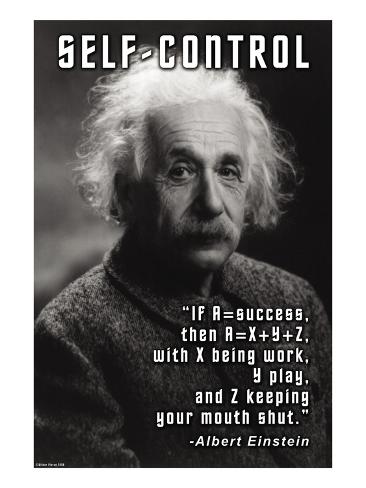[h=1]EXCLUSIVE: Shock poll shows Hillary is running BEHIND Republicans in battleground states as she prepares do-over for sputtering campaign with New York City speech[/h]
As Hillary Clinton gears up to reboot her historic but underwhelming presidential campaign with a dramatic New York City speech on Saturday, poll numbers show she might need more than a Big Apple skyline to motivate voters next year in key swing states.
Polling data collected this month by Vox Populi Polling in the six battleground states most likely to determine the 2016 presidential election show that Clinton trails a generic Republican candidate by 1 percentage point overall.
The 46–47 showing for the former secretary of state is a departure from nearly every poll since March that asked voters to choose between Clinton and a specific GOP candidate. Only Jeb Bush, the former Florida governor, has posted a winning margin against Clinton, and that was a month ago in a Fox News poll.
Clinton's suddenly flagging performance in a hypothetical contest against a Republican – who is still unnamed – threatens to throw cold water on her big coming-out moment.
'Sure it's a challenge, and a big one,' a Democratic campaign consultant in New Hampshire told Daily Mail Online on background. 'I mean, look – we were hoping she'd run the table and lead wire-to-wire, but her negatives are high so it's going to be a long year-and-a-half.'
Clinton's negatives are indeed high. Fifty per cent of active voters in the swing states of Colorado, Florida, Iowa, Nevada, Ohio, and Virginia told pollsters that they have a negative impression of her. Just 42 per cent view her positively.
Similar numbers emerged on the question of whether voters see her as a sympathetic character who shares their values. Fifty-one per cent said no, compared with 42 per cent who said yes.
A majority of swing-state voters also have trouble trusting Clinton: Just 44 per cent said they do, while 51 per cent said they don't.
Clinton has so far run a campaign based on an apparent strategy of re-introducing herself to Americans as a politician who's independent of her husband, former president Bill Clinton, while studiously avoiding tough questions about the scandals that threaten to derail her.
Underlying that approach, according to a campaign source, is the hope that her status as the most prominent woman ever to run for the U.S. presidency will earn her enough votes on the margins of several demographic groups to propel her to the White House.
That's hardly a given, according to the Vox Populi poll: Just 33 per cent of swing-state voters – a much smaller group than those who say they'll vote for her – believe her gender will make them more likely to support her. Nearly half, 49 per cent, said it will make no difference at all.
The survey oversampled women, who made up 54 per cent of the respondents. Democrats, too, were over-represented compared with Republicans. In a more balanced 2016 electorate, Clinton's fortunes might be even worse.
- Pollsters contacted 1,618 active voters in Colorado, Florida, Iowa, Nevada, Ohio, and Virginia
- Results put Hillary Clinton one point behind a 'generic' Republican in those critical 'swing' states that will determine the 2016 election
- A majority of swing-state voters don't believe Hillary shares their values, and say they don't trust her
- Real numbers may be even worse for her since the survey 'oversampled' Democrats and women
- Survey was commissioned by conservative American Crossroads super PAC
As Hillary Clinton gears up to reboot her historic but underwhelming presidential campaign with a dramatic New York City speech on Saturday, poll numbers show she might need more than a Big Apple skyline to motivate voters next year in key swing states.
Polling data collected this month by Vox Populi Polling in the six battleground states most likely to determine the 2016 presidential election show that Clinton trails a generic Republican candidate by 1 percentage point overall.
The 46–47 showing for the former secretary of state is a departure from nearly every poll since March that asked voters to choose between Clinton and a specific GOP candidate. Only Jeb Bush, the former Florida governor, has posted a winning margin against Clinton, and that was a month ago in a Fox News poll.
Clinton's suddenly flagging performance in a hypothetical contest against a Republican – who is still unnamed – threatens to throw cold water on her big coming-out moment.
'Sure it's a challenge, and a big one,' a Democratic campaign consultant in New Hampshire told Daily Mail Online on background. 'I mean, look – we were hoping she'd run the table and lead wire-to-wire, but her negatives are high so it's going to be a long year-and-a-half.'
Clinton's negatives are indeed high. Fifty per cent of active voters in the swing states of Colorado, Florida, Iowa, Nevada, Ohio, and Virginia told pollsters that they have a negative impression of her. Just 42 per cent view her positively.
Similar numbers emerged on the question of whether voters see her as a sympathetic character who shares their values. Fifty-one per cent said no, compared with 42 per cent who said yes.
A majority of swing-state voters also have trouble trusting Clinton: Just 44 per cent said they do, while 51 per cent said they don't.
Clinton has so far run a campaign based on an apparent strategy of re-introducing herself to Americans as a politician who's independent of her husband, former president Bill Clinton, while studiously avoiding tough questions about the scandals that threaten to derail her.
Underlying that approach, according to a campaign source, is the hope that her status as the most prominent woman ever to run for the U.S. presidency will earn her enough votes on the margins of several demographic groups to propel her to the White House.
That's hardly a given, according to the Vox Populi poll: Just 33 per cent of swing-state voters – a much smaller group than those who say they'll vote for her – believe her gender will make them more likely to support her. Nearly half, 49 per cent, said it will make no difference at all.
The survey oversampled women, who made up 54 per cent of the respondents. Democrats, too, were over-represented compared with Republicans. In a more balanced 2016 electorate, Clinton's fortunes might be even worse.











